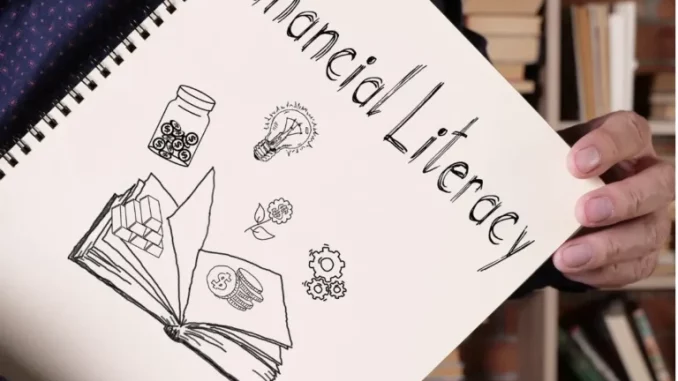
What is Financial Literacy?
Financial literacy is the ability to understand and effectively use various financial skills, including personal financial management, budgeting, saving, investing, and understanding debt. It involves being knowledgeable about financial concepts and products, such as interest rates, inflation, credit scores, and retirement planning. Simply put, financial literacy equips you with the tools to make sound financial decisions.
Why is Financial Literacy Important?
- Better Money Management: Financial literacy allows you to manage your money effectively. It helps you create a budget, track your spending, and make informed decisions about how to allocate your income. This can prevent overspending and ensure you have enough money for essential needs and future goals.
- Avoiding Debt Traps: Understanding the implications of debt is crucial. Financial literacy teaches you how to use credit responsibly, recognize predatory lending practices, and understand the long-term consequences of accumulating debt. This knowledge can help you avoid common pitfalls like high-interest credit card debt and payday loans.
- Building Savings and Investments: A key component of financial literacy is knowing how to save and invest wisely. By understanding different savings options, such as emergency funds, retirement accounts, and investment vehicles, you can build wealth over time and prepare for future financial needs.
- Achieving Financial Goals: Whether your goals are short-term, like buying a car, or long-term, like purchasing a home or retiring comfortably, financial literacy provides the roadmap to reach them. It helps you set realistic financial goals, develop a plan to achieve them, and monitor your progress along the way.
- Enhancing Financial Security: Financial literacy empowers you to protect yourself against financial risks. This includes understanding insurance options, creating an emergency fund, and planning for unexpected expenses. With the right knowledge, you can build a financial safety net that ensures peace of mind.
Key Concepts of Financial Literacy
- Budgeting: Creating a budget is the foundation of good money management. A budget helps you understand where your money is going, prioritize spending, and ensure you’re living within your means. Start by listing your income and expenses, and then allocate funds to different categories such as housing, food, transportation, and savings.
- Saving and Investing: Building savings is crucial for financial stability. An emergency fund should be your first priority, followed by long-term savings goals such as retirement. Investing, on the other hand, allows your money to grow over time through compounding interest and market gains. Understanding the basics of stocks, bonds, mutual funds, and other investment options can help you make informed decisions.
- Understanding Credit: Credit plays a significant role in your financial life. A good credit score can open doors to favorable loan terms, lower interest rates, and better financial opportunities. To maintain a good credit score, pay your bills on time, keep your credit card balances low, and avoid opening too many new accounts at once.
- Debt Management: Not all debt is bad, but managing it wisely is key. Understand the difference between good debt (like a mortgage or student loans) and bad debt (like high-interest credit cards). Create a plan to pay off debt strategically, starting with the highest-interest loans first.
- Financial Planning: Developing a financial plan involves setting goals, creating a strategy to achieve them, and reviewing your progress regularly. This might include planning for retirement, saving for a child’s education, or purchasing a home. A well-crafted financial plan can guide you through major life events and help you stay on track.
Steps to Improve Your Financial Literacy
- Educate Yourself: Take advantage of the many resources available to enhance your financial knowledge. Books, online courses, workshops, and financial blogs are excellent places to start. Consider seeking advice from financial advisors or counselors if you need personalized guidance.
- Practice Good Financial Habits: Implement what you learn by practicing good financial habits daily. Create and stick to a budget, pay bills on time, and regularly review your financial statements.
- Stay Informed: The financial world is constantly changing, so staying informed about new products, regulations, and trends is essential. Follow financial news, read up on the latest financial strategies, and continue to expand your knowledge.
- Teach Others: Share your knowledge with friends, family, or community members. Teaching others not only reinforces your own understanding but also helps create a financially literate society.
Conclusion
Financial literacy is a lifelong journey that begins with understanding the basics of money management. By empowering yourself with financial knowledge, you can take control of your finances, avoid common pitfalls, and work toward a secure and prosperous future. Remember, the more you know about managing your money, the better equipped you’ll be to make decisions that enhance your financial well-being.